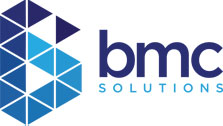
Understanding What CMS is!
CMS stands for content management system. It is a web application that allows you to edit, modify and publish your website’s content in a user-friendly way that eliminates the need for manual coding.
A CMS is the portal through which you can manage all the behind-the-scenes mechanics of your website, beyond merely altering text and graphics. For instance, CMS will automatically create navigation icons which you can use to create a new page, index all your content to make it searchable and help you keep track of visitors and users.
The latter means that a CMS enables one-to-one marketing. It also has the ability to have your site’s content, advertising, prices etc. to be tailored to a specific user or category of user when your website is accessed.
Of all the these platforms, WordPress and Joomla are the most widely used. There are website developers who offer custom CMS development but most website owners today choose a content management system based on PHP and MySQL.
WordPress or Joomla?
WordPress and Joomla are the two most popular content management system currently available. This is a quick run down of the capabilities and advantages of each CMS which will depend on your website’s function and your individual business’ needs.
WordPress is the original CMS and often thought to be the simpler and more user-friendly option, possibly because it has been around longer and is still the most prevalent CMS around. Its purpose remains to be to publish and distribute content, which is clearly reflected in the themes that the platform offers. Most are clearly designed with blogging and content curation in mind and often appeal to clients who appreciate a minimalistic design and a blog-style/content-driven site.
Joomla, on the other hand, is often the preferred site for corporate clients who require a more complex, modern, and innovative site. For those that wish to have an intranet system incorporated into their main site, it is an obvious winner. Joomla is the more versatile and customisable of the two platforms and also has the benefit of a pro-active support forum.
Both platforms require only a small time investment to learn the ins and outs; ultimately the better system is the one that best suits the purpose of your website and your aesthetic and design preferences.

